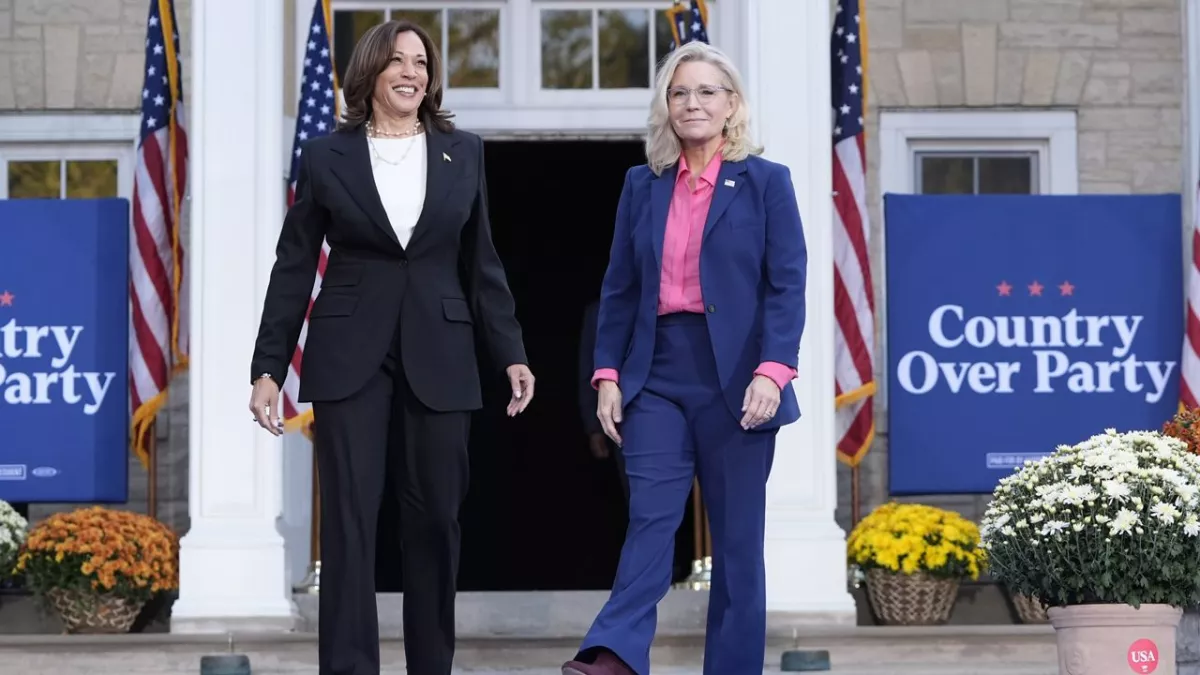Guest list at controversial American VP's funeral exposes deep rift within Republican camp
The death of former Republican Vice President Dick Cheney has drawn renewed attention to his complex legacy and to the extent to which he and his family have been ostracized from the Trump-led party. As Washington’s political elite gathered for his funeral on November 20, the absence of the current president and vice president spoke volumes about the state of the American partisan landscape.
President Donald Trump and Vice President JD Vance were both excluded from the guest list, according to a CNN source familiar with the matter, while both Democratic former leader Joe Biden and his deputy, Kamala Harris, were warmly embraced at the ceremony.
Cheney occupied a central place in foreign policy debates in every Republican administration from Gerald Ford to George W. Bush. Yet few within today’s Grand Old Party (another name for the Republican Party, GOP) publicly align themselves with his worldview.
Before serving as George W. Bush’s vice president from 2001 to 2009, Cheney held roles as defence secretary, White House chief of staff and Wyoming’s sole congressman.
During his break from public office under Democratic President Bill Clinton, he entered the private sector and became CEO of the oil services giant Halliburton. That chapter of his career would later spark controversy over the Iraq War, as Halliburton secured a no-bid contract for operations in the country and sparked outrage over his ties to the decision.
He served as defence secretary at the end of the Cold War and as vice president in its aftermath — a period marked by strong confidence in America’s ability to shape global outcomes, including through military intervention.
Though Cheney’s career spans decades, he is most vividly remembered as a chief architect of the US invasion of Iraq, insisting that Saddam Hussein possessed weapons of mass destruction. Even after that claim was disproven, he continued to maintain the invasion was “the right thing to do” as recently as 2018. Today, only a tiny number of active politicians in either party concur.
How Trump's GOP branch abolished Cheney legacy
The enormous human and financial costs of the Iraq War helped turn “neoconservative” — the label associated with Cheney’s interventionist approach — into a toxic brand within the MAGA movement and much of US politics.
Despite having been among the most powerful figures in Washington during his tenure, the Cheney name has become politically radioactive in a Republican Party now dominated by Trump.
During his 2016 campaign, Trump rejected the traditional GOP foreign policy consensus that Cheney had helped define. Their relationship deteriorated irreparably after the 2020 election, when both the former vice president and his daughter, then-Rep. Liz Cheney (R-Wyo.), denounced Trump as a threat to democracy for attempting to overturn his defeat.

In one of his final public acts, Dick Cheney cast his vote for former Vice President Kamala Harris, then the Democratic presidential nominee, in 2024. Liz Cheney even joined Harris on the campaign trail, appealing to Republican voters uneasy about Trump.
“It wasn’t just personal, it was a clash of worldviews,” said Matt Dallek, a professor of political management at George Washington University in an interview to The Hill. “Cheney had the opposite view of Trump when it comes to foreign policy.”
Dallek noted that the divide between the GOP’s hawkish wing, embodied by Cheney, and the anti-interventionist wing led by Trump persists even as Trump serves a second term.
Cheney left office deeply unpopular, with an approval rating of just 31 percent, as the article recalls. Trump’s 2016 run capitalized on public frustration with the foreign policy establishment Cheney represented, with Trump promising to end “forever wars” and reduce America’s overseas commitments.
Although it is customary for former presidents and vice presidents to attend one another’s funerals regardless of party, the Cheney family’s warm reception of Democratic leaders — paired with the apparent snubbing of the sitting Republican president and vice president — illustrates a profound national rift that extends well beyond political ideology.
By Nazrin Sadigova








